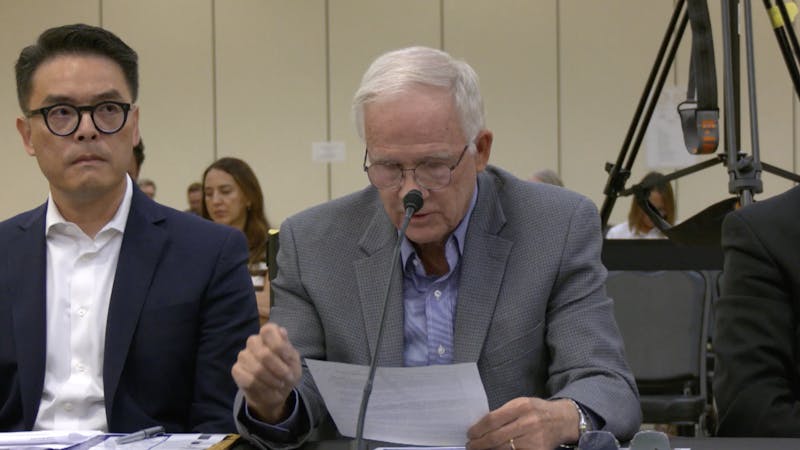Emergency alert system only works if used
Probably everyone would agree that Rice's comprehensive alert system would be good for notifying students of impending natural disasters, campus closings and crimes in the surrounding neighborhoods. But what about the on-campus presence of a gun-wielding man fleeing the Rice University Police Department?We feel that when a man accused of physically assaulting his undergraduate girlfriend evades police custody by vaulting from the roof of Brown College (see story, page 7), students should be notified of his whereabouts, and we don't mean in an e-mail an hour later. Nevertheless, we are very appreciative that at least some college masters provided the electronic communication, considering others did not even bother with that limited notice.
We consider the lack of common response among the masters relatively excusable, because we find it disturbing that the administration put the burden of distribution of information as important as the whereabouts of an escaped criminal on the masters in the first place. The point of setting up the university-wide alert system in the first place was to make it easy for those at the highest level of the administration to contact students immediately in the event of an emergency. That said, we fully believe that sending a timely text message to every registered phone on campus would have been much easier and more considerate than trying to disseminate information through multiple parties and hoping it would arrive intact and simultaneously to each and every student.
More from The Rice Thresher

Rice announces Chao College as 12th residential college
Rice announced that the 12th residential college will be named Ting Tsung and Wei Fong Chao College Aug. 19. The college, set to open in fall 2026, will contain nearly 300 on-campus beds.
Dining access fund announced following on-campus unlimited meal swipes
Rice announced new food assistance programs on Tuesday to account for the controversial change in the on-campus meal swipe plan.

Rice disaster prediction model discussed at hearing on deadly Central Texas floods
The House and Senate Select Committees on Disaster Preparedness and Flooding held a hearing on July 31 in Kerrville to address the deadly July 4 flooding in Central Texas. The flooding along the banks of the Guadalupe River killed 108 people, including 37 children. In the charged hearing, Texas lawmakers and flood survivors criticized the local response to the disaster.


Please note All comments are eligible for publication by The Rice Thresher.